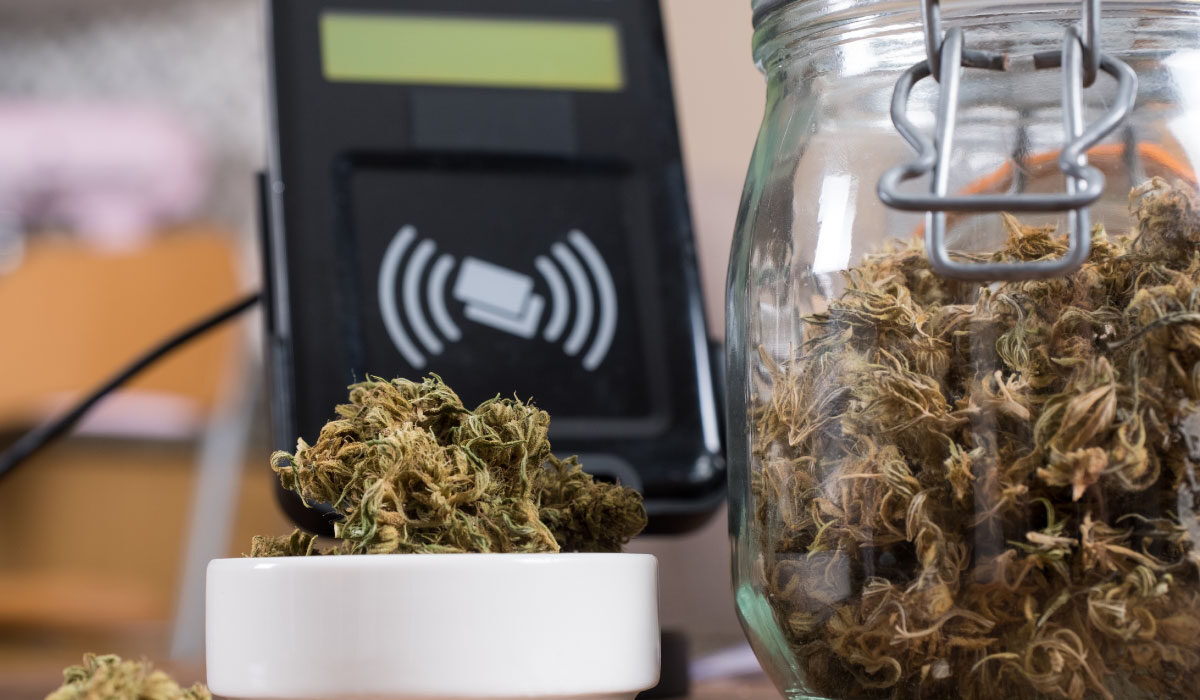Listen to this post
Post Summary
What is a cannabis tax bond?
Why are cannabis tax bonds important?
Who needs a cannabis tax bond?
How much does a cannabis tax bond cost?
How can BOSS Bonds help with cannabis tax bonds?
Cannabis Tax Bonds: Ensuring Compliance with State and Local Regulations
As more states embrace legalization, the cannabis industry is growing at a rapid pace. Its retail market is anticipated to reach $57 billion by 2028, up from $38 billion in 2024. This growth presents lucrative opportunities for business owners, but it also comes with strict regulatory requirements.
Tax compliance, in particular, is critical for cannabis businesses. That’s where cannabis tax bonds come into play—these bonds help ensure timely tax payments, build trust with regulators, and safeguard government revenue.
So, what are cannabis tax bonds? And how do they work? Below, we’ll answer these questions and review the steps involved in securing a cannabis tax bond with a competitive rate.

What Are Cannabis Tax Bonds?
Cannabis tax bonds are a type of surety bond designed to guarantee that cannabis businesses pay their required taxes. You can think of them as a financial safety net for state and local governments. These bonds create a legal agreement between the following parties:
- Obligee – The state or local government requiring the bond.
- Principal – The cannabis business purchasing the bond.
- Surety – The surety company providing the bond.
If a cannabis business fails to pay its taxes on time (or at all), the regulating government agency can file a claim against the bond to recover the unpaid amount. After that, the surety will pay the government and seek reimbursement from the cannabis business.
By holding cannabis businesses financially accountable, cannabis tax bonds help ensure compliance with state and local tax laws. They also safeguard government revenue when cannabis companies fall short of their tax obligations.
Note: Cannabis tax bonds aren’t the only type of surety bond required in the cannabis industry. Some states also require license bonds, which guarantee that a cannabis business will operate according to its state licensing laws.
Read More: The Important Role of Surety Bonds in Professional Licensing
Why Do States Require Cannabis Tax Bonds?
The cannabis industry faces unique financial challenges that make tax collection more complicated than in other industries. These challenges include:
- High tax rates – Cannabis businesses often face heavy tax burdens. For example, dispensaries can’t deduct ordinary business expenses due to IRS Code 280E. From state taxes to local fees, effective tax rates for cannabis companies can rise above 30%.
- Cash-heavy operations – Since cannabis remains illegal at the federal level, many banks are unwilling to work with cannabis businesses. This forces companies to operate primarily in cash, making it harder to track revenue accurately and ensure timely tax payments.
Together, these complications increase the risk that cannabis businesses will default on their taxes. However, cannabis tax bonds can counteract this risk by encouraging timely payments.
Which States Require Cannabis Tax Bonds?
Cannabis laws and regulations vary significantly from state to state. Surety bonds aren’t required in every state yet, but the list is expected to grow in the coming years.
As of 2025, the following states have cannabis surety bond mandates in place:
- California – As the first state to legalize medical marijuana in 1996, California has detailed laws on the books. All cannabis distributors must purchase a cannabis tax bond with a minimum amount of $5,000. The California Department of Tax and Fee Administration (CDTFA) oversees and enforces tax compliance.
- Colorado – Businesses involved in wholesale cannabis transactions must purchase excise tax bonds. The required bond amount depends on the business’ size and tax liability.
- Nevada – While surety bonds aren’t required on the state level yet, many cities in Nevada mandate cannabis surety bonds. For example, the City of Las Vegas requires cannabis businesses to purchase a $250,000 surety bond to obtain their cannabis licenses.
- Massachusetts – Licensed cannabis businesses in Massachusetts must obtain a surety bond to guarantee their tax payments and regulatory compliance. Their bond funds must be made payable to the Marijuana Regulation Fund or the Cannabis Control Commission.
- Oregon – After missing out on $18.7 million in retail cannabis tax revenue, Oregon regulators tightened up their cannabis tax regulations in 2022. Cannabis producers and retailers must now purchase excise tax bonds to prove their tax compliance.
Along with these states, many others are in the process of establishing regulatory frameworks for legal cannabis—New York, New Jersey, and Virginia are just a few notable examples. As these states refine their compliance requirements, they may start mandating cannabis tax bonds soon, too.

How to Secure a Cannabis Tax Bond
Whether your state already requires cannabis tax bonds or plans to implement them in the near future, it’s important to understand the bonding process. Here’s what you need to know:
Financial Requirements
Surety companies want to make sure business owners are financially stable before approving their bond applications. Sureties consider two factors when evaluating a business owner's financial standing, including their:
- Credit score – A high personal and business credit score can help companies secure cannabis tax bonds with lower annual premiums.
- Financial health – Strong financial statements and a history of timely tax payments can boost a business owner’s chances of bond approval.
Cost Considerations
Cannabis tax bonds typically cost 1% to 10% of the total bond amount. For example, if you need a $5,000 bond to run your cannabis business in California, your annual bond premium may cost anywhere from $50 to $500.
To qualify for lower annual premiums, you should:
- Take steps to improve your credit score.
- Maintain strong financial records.
- Work with an experienced surety bond agency, like BOSS Bonds.
Application Process
When you’re ready to apply for your cannabis tax bond, it’s a good idea to gather your documents first. You’ll need your:
- Business license(s)
- Financial statements (profit and loss, balance sheets, etc.)
- Tax history and payment records
Next, you can fill out the application, which usually only takes a few minutes. Once you submit it, you should hear back from your surety within a few days to a couple of weeks. At BOSS Bonds, we pride ourselves on providing a quick and easy bonding process.
What Happens If a Cannabis Business Fails to Pay Taxes?
When a cannabis business doesn’t pay its taxes, it can trigger a chain of costly consequences, including:
- Fines and penalties – Most states charge interest on unpaid taxes. These extra fees can add up quickly, exacerbating business owners’ outstanding balances.
- Bond claims – If not resolved promptly, governments may make claims against the non-compliant business' tax bonds to collect unpaid taxes. Having a history of bond claims can make it more challenging to qualify for low premiums going forward.
- License suspension or revocation – Failing to pay taxes can lead cannabis businesses to lose their licenses, temporarily or permanently shutting down their operations.
- Legal consequences – In severe cases, governments may sue cannabis companies over their late tax payments. Along with being expensive and time-consuming, these legal proceedings can lead to serious reputational damage.
These consequences highlight the importance of avoiding bond claims by staying compliant with tax regulations.

How P&C Agents Can Help Cannabis Businesses with Tax Bonds
As a P&C insurance agent working in the cannabis space, you’re uniquely positioned to support your clients with their surety bond needs. Here are a few ways you can set your clients up for success:
- Offer education – Many cannabis entrepreneurs are unfamiliar with surety bonds. By educating them on how cannabis tax bonds work and why they matter, you can help them take the right steps to stay compliant.
- Outline their bond options – Partnering with a reputable surety bond agency, like BOSS Bonds, allows you to offer your cannabis clients a wide range of bond options. We carry over 3,000 types of surety bonds nationwide. Our knowledgeable team can help your clients determine what type of bond they need in their state and secure the best bond program.
- Support their ongoing compliance – A surety bond isn’t a one-and-done purchase. Your clients will likely need to renew their cannabis tax bonds every year. You can streamline their compliance by reminding them of their renewal deadlines and offering them advice on ways to lower their premiums.
Read More: Common Mistakes P&C Agents Make with Surety Bonds & How to Avoid Them
Bolster Your Cannabis Tax Compliance With BOSS Bonds
Whether you’re a cannabis business owner, CFO, or an insurance agent serving this niche, understanding the role of cannabis tax bonds is essential.
At BOSS Bonds, our surety specialists can help you determine your state’s current and upcoming bonding requirements. Better yet, we can help you secure fast approvals and competitive rates.
Ready to get started? Contact BOSS Bonds today!
Sources:
Investopedia. The Future of the Marijuana Industry in America.
https://www.investopedia.com/articles/investing/111015/future-marijuana-industry-america.asp
IRS. IRS: Marijuana remains a Schedule I controlled substance; Internal Revenue Code Section 280E still applies.
Taxpayer Advocate. Despite Operating Legally in Many States, Marijuana-Related Businesses Face Significant Federal Income Tax Law Challenges.
MJBizDaily. Where marijuana is legal in the United States.
https://mjbizdaily.com/map-of-us-marijuana-legalization-by-state/
Department of Cannabis Control California. Form 8113: Commercial Cannabis Licensee Bond.
https://cannabis.ca.gov/2024/01/form-commercial-cannabis-licensee-bond/
Cannabis Control Commission: Commonwealth of Massachusetts. License Application Checklist.
https://masscannabiscontrol.com/wp-content/uploads/Application-Checklist.pdf
Statesman Journal. Oregon missed $18M in cannabis tax revenue, new rules announced.
Key Points:
What is a cannabis tax bond, and how does it work?
A cannabis tax bond is a financial guarantee required by state and local governments to ensure that cannabis businesses:
- Pay taxes on time: Protecting government revenue from tax evasion.
- Comply with regulations: Adhering to strict cannabis industry laws.
- Operate responsibly: Promoting accountability within the industry.
If a business fails to remit taxes, the bond provides financial recourse for the government. Learn more about cannabis tax bonds on the BOSS Bonds Blog.
Why are cannabis tax bonds essential for compliance?
Cannabis tax bonds play a critical role in the industry by:
- Protecting government revenue: Ensuring taxes are collected efficiently and fairly.
- Promoting accountability: Holding businesses accountable for their financial obligations.
- Supporting industry growth: Building trust between businesses, regulators, and consumers.
For example, in California, cannabis businesses must secure a $5,000 tax bond to comply with the Medicinal and Adult-Use Cannabis Regulation and Safety Act (MAUCRSA).
Who is required to obtain a cannabis tax bond?
Cannabis tax bonds are typically required for:
- Cultivators: Growing cannabis plants.
- Distributors: Transporting cannabis products.
- Retailers: Selling cannabis to consumers.
- Manufacturers: Producing cannabis-infused products.
These bonds are often part of the licensing process, ensuring businesses meet state and local requirements.
How much does a cannabis tax bond cost, and what factors affect pricing?
The cost of a cannabis tax bond depends on:
- Bond amount: Set by the state or local government (e.g., $5,000 in California).
- Credit score: Higher credit scores typically result in lower premiums.
- Business financials: Strong financial history can reduce costs.
Premiums generally range from 1-10% of the bond amount, depending on these factors. Get a free quote today with BOSS Bonds.
What happens if a cannabis business fails to comply with tax regulations?
Non-compliance with tax regulations can lead to:
- Bond claims: The government can file a claim against the bond to recover unpaid taxes.
- Fines and penalties: Businesses may face additional financial consequences.
- License revocation: Failure to comply can result in losing the license to operate.
Cannabis businesses must prioritize compliance to avoid these risks and maintain their reputation.
How can BOSS Bonds help cannabis businesses secure tax bonds?
BOSS Bonds simplifies the process of obtaining cannabis tax bonds by offering:
- Fast online applications: Apply for bonds in minutes.
- Competitive rates: Affordable solutions tailored to your business needs.
- Expert guidance: Navigate complex cannabis regulations with ease.
- Nationwide coverage: Licensed to provide bonds across all states with cannabis programs.
Start your application today with BOSS Bonds and ensure your business stays compliant!












